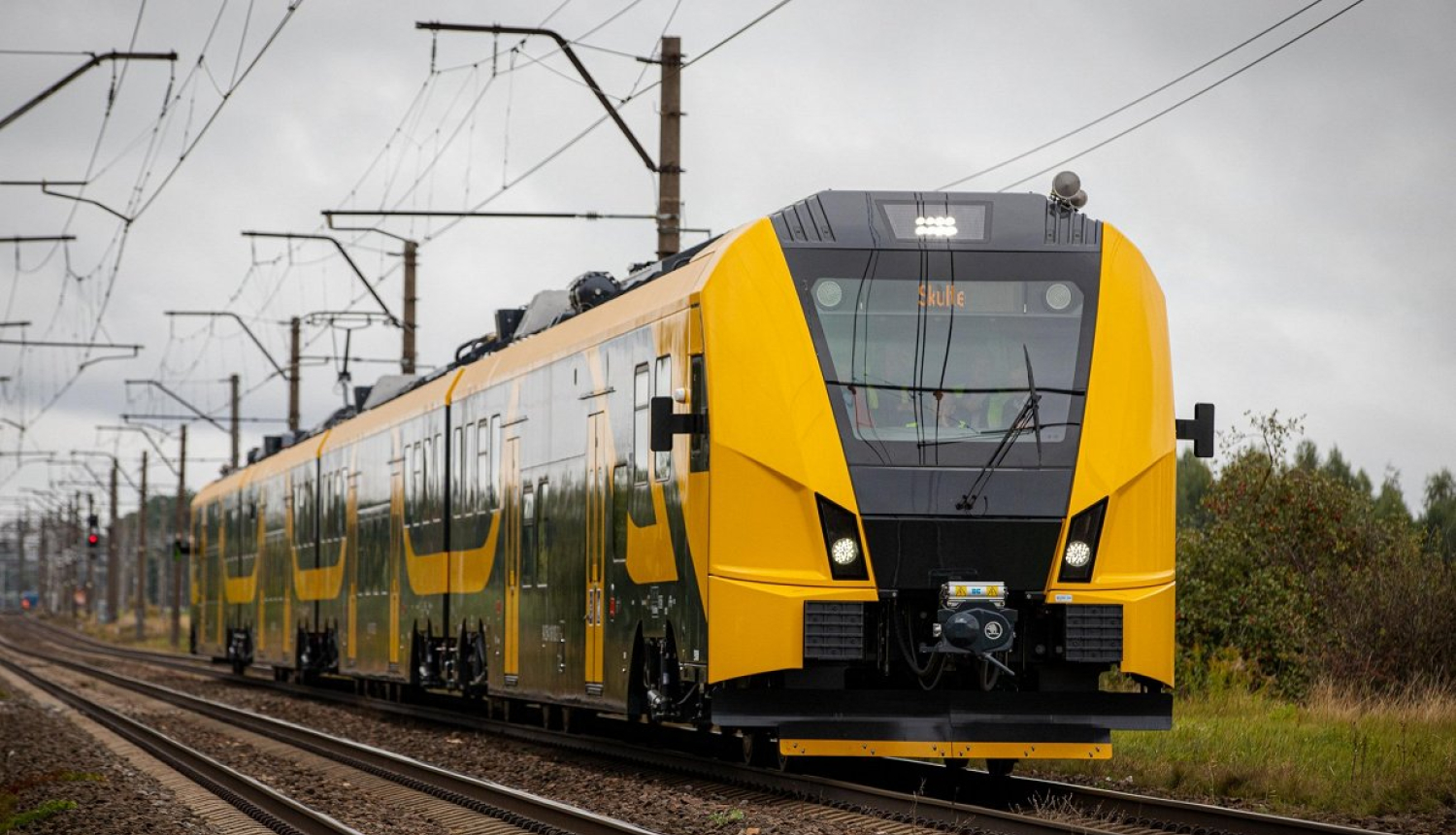On July 3, significant disruptions to train services were observed for more than 6 hours on the Riga–Jelgava line due to damage to the railway overhead line. Considering this incident and the fact that overhead line damage has previously caused severe disruptions to railway traffic multiple times, the Transport Accident and Incident Investigation Bureau has initiated a preliminary assessment of the situation.
The railway overhead line was damaged on July 3 at 12:18 p.m. between Olaine and Torņakalns, near the former Atgāzene stop. During the movement of the Škoda electric train (train no. 6728, composition L16V), the overhead contact wire suddenly snapped, resulting in the train's pantograph being torn off.
Jāzeps Luksts, Head of the Railway Accident Investigation Department at the Transport Accident and Incident Investigation Bureau, explained: "The pantograph torn off from the new Škoda train hit the train's body and fell to the ground. Fortunately, it struck the train's body instead of crashing through a window, which could have posed a serious risk of injury or even death to passengers due to glass damage. Furthermore, it must be emphasized that this incident occurred while the passenger train was in motion. Such accidents caused by overhead line issues not only inconvenience passengers for half a day and cause financial losses to third parties but also pose a serious threat to passenger safety."
The Transport Accident and Incident Investigation Bureau considers that, although this incident only caused inconvenience to railway passengers who were unable to reach their planned destinations on time, its nature points to a significant safety threat to train operations and passenger transportation.
Given the potentially dangerous consequences of overhead line incidents, the Bureau has started an initial assessment of this accident to determine possible causes of the overhead line and pantograph damage. Based on this assessment, a decision will be made regarding the need for an in-depth investigation aimed at developing recommendations to prevent similar incidents in the future.
The Transport Accident and Incident Investigation Bureau operates under the supervision of the Minister of Transport, with primary responsibilities including investigating railway accidents and serious railway incidents, civil aviation accidents, and maritime accidents, analyzing their causes, and developing safety recommendations in accordance with the regulations of the Republic of Latvia and international standards.


